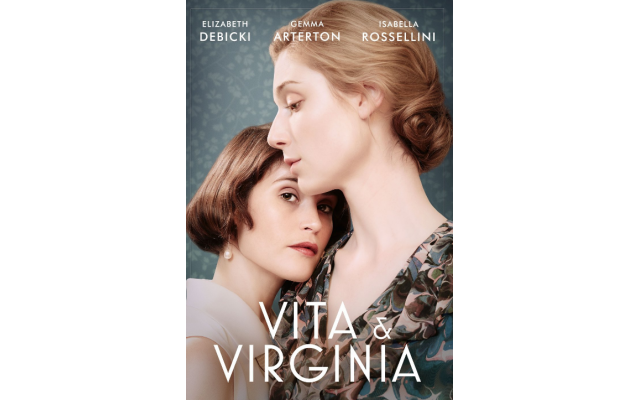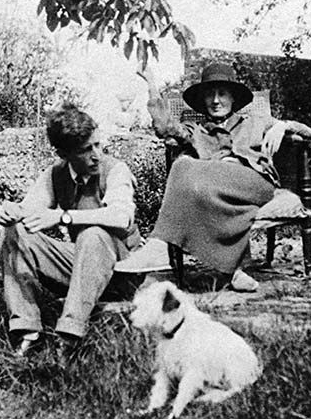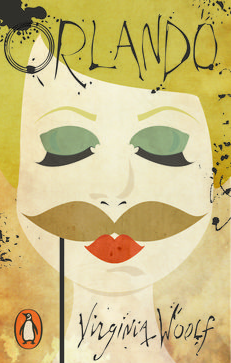New Film Examines Life of Virginia Woolf
A new film about author Virginia Woolf’s unconventional love life and the stresses it produced in the marriage to her Jewish husband opens in Midtown Sept. 6.

A new film about author Virginia Woolf’s unconventional love life and the stresses it produced in the marriage to her Jewish husband opens in Midtown Sept. 6.
“Vita and Virginia” is likely yet another attempt to satisfy our insatiable curiosity with titled Brits and, at the same time, try to steal some of the thunder from the well-publicized release next month of a new film about life at “Downton Abbey.”
The arrival of both films is a reminder, if one is needed, of America’s fascination with British upper-class life. You don’t have to follow the minute-by-minute progress of the latest royal birth to know that we always love British aristocrats, whether on TV or in our neighborhood multiplex theater.
While both are set in roughly the same year, 1927, and there are frequent and beautifully framed green landscapes featuring great houses and long winding roads, that is where the comparisons between the two films largely ends.

“Vita and Virginia” is mostly an autobiographical tale of the passionate relationship between the great British novelist, feminist and woman of letters, Virginia Woolf, and Vita Sackville-West, a writer of lesser talent who grew up wealthy, pampered and comfortably cosseted within the British aristocratic tradition.
As Gemma Arterton, the British actress who plays Sackville-West put it recently, there was a deliberate attempt to create a film that would appeal to a younger audience.
“The 1920s was a time of shaking free of the Victorian era and our focus is on the people doing just that. We want the film to feel young and fresh. The casting is quite young, I hope it cuts through that stiff period drama feel that we’re used to.”
Mediating this romantic relationship, which is portrayed with a frankness that some viewers may find discomforting, is Woolf’s sober and selflessly devoted husband, Leonard, who grew up a liberal Jew in a well-to-do British middle-class family.
Several years after he and Virginia were married in 1912, they started a company to publish her novels, the Hogarth Press, which grew into a large and successful enterprise. Before it was sold in 1946 it published 525 titles, including the original printing of T.S Eliot’s “The Waste Land,” and the works of Sigmund Freud and his International Psychoanalytical Association.
Hogarth’s list of authors also included such literary stars as Katherine Mansfield, C. Day Lewis, Robert Graves, John Maynard Keynes, Christopher Isherwood, and Gertrude Stein.
But it was in nurturing and developing the abundant talent of his wife that Leonard Woolf found his purpose in life. They didn’t have any children and probably had a less than perfect sexual life, but Woolf’s husband was passionate about making sure the world appreciated his wife’s genius.
And he did it all while attempting to navigate the ingrained anti-Semitism that has been such a prominent feature of British life, then and now.
While he was a graduate of the prestigious St. Paul’s prep school and Cambridge
University, he developed what he called in his autobiography a “façade, which if our sanity is to survive we must present to the outside and usually hostile world as a protection to the naked, tender, shivering soul.” One might add shivering Jewish soul to his description.
Coping didn’t come easy, even when his wife made anti-Semitic remarks about his family, which she described in her journal as “nine Jews, all of whom, with the single exception of Leonard, might well have drowned, with the world not wagging one ounce the worst.”
Despite its unconventionality, the marriage was generally considered to be a successful one, and if there had been no Leonard Woolf perhaps there might not have been the Virginia Woolf that we know so well through her writing.

In “Vita and Virginia,” we have a film with a strong contemporary feel that reminds us of the twists and turns that a literary life often takes. Out of the relationship with Sackville-West was born the novel “Orlando,” a turning point in Virginia Woolf’s career, whose popular and critical success guaranteed the future of the Hogarth Press and her literary legacy.
With its glimpses into the fractious life of the novelist, one gains a greater appreciation of her husband, the person who provided support and continuity at a difficult period in her life.
Eventually Virginia Woolf, who suffered from frequent debilitating headaches and bipolar mental illness, succumbed to the dark forces within her mind. On March 28, 1941, she ended her life by walking into the river behind the couple’s country home.
In her final words to him, she wrote, “I owe all the happiness of my life to you…Everything has gone from me but the certainty of your goodness…I don’t think two people could have been happier than we have been.”
“Vita and Virginia” opens Sept. 6 at the Landmark Midtown Art Cinema.



comments